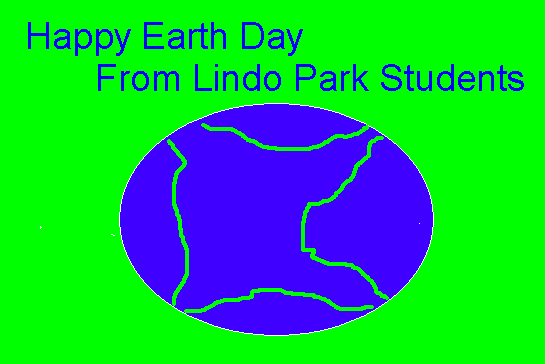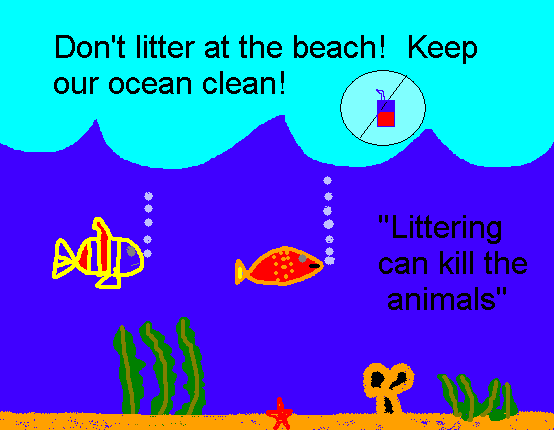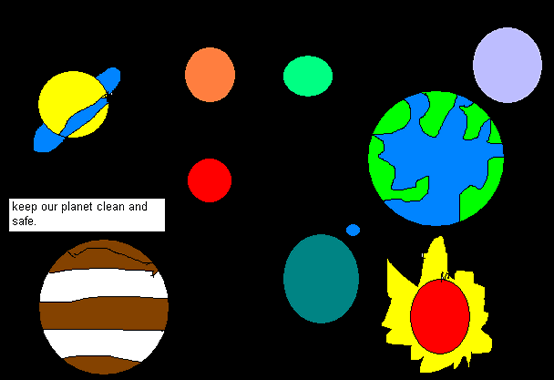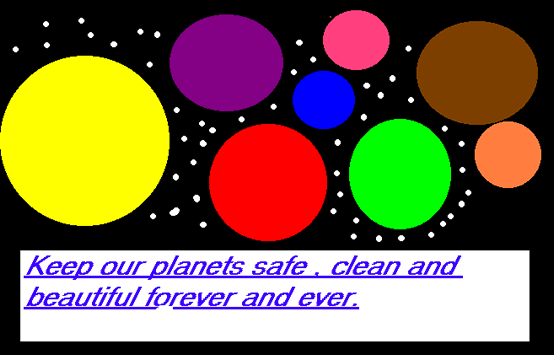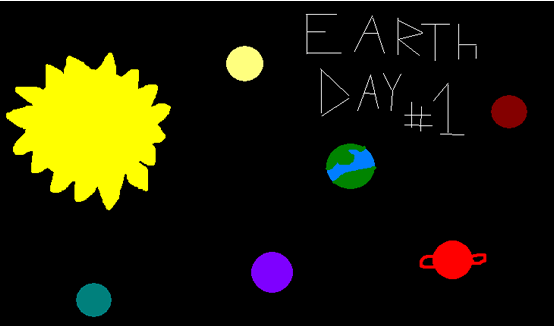|
Students
listened to the story, The Lorax, by Dr. Seuss,
and discussed what they could do to make a world a better
place. Students discussed the “Power of One”
with Mrs. Henry, a bird expert from Sea World who came
to teach the class about birds. If each person does their
part to pick up trash, take care of animals, and recycle,
then each will have a positive effect upon the world.
Students went on a bird watching field trip across the
street from our school to Lindo Lake. There they saw 23
different types of birds. Since it is spring, there were
many babies! In fact, a duck laid three eggs on our school
campus just yesterday!
Students wrote poems about birds, using a template (see
Birds Here, Birds There). Some students wrote free verse
poems using the book Cat’s Colors (1997) by Jane
Cabrera. (See Ariadna’s poem about a penguin’s
favorite colors.) Students used Microsoft Paint to illustrate
an environmental message for Earth Day. A word processing
program was used to publish the poems.
|
|
|
|
|
|
Birds here, birds there,
Birds, birds everywhere!
Strong robins flying,
Fast blue jays soaring,
Trumpeter swans feeding,
And brown bald eagles eating.
Birds in the air,
Birds on the ground,
Birds on telephone wires,
And birds on a lake!
Birds here, birds there,
Birds, birds everywhere!
Birds! Birds! Birds!

|
I’m
a penguin.
What is my favorite color?
|
|
Is it white?

White is the color of my belly
which is hard to see against the light
to a whale.
|
|
Is
it orange?

Orange
is the color of my back
and feet as I bring krill to feed
my chick.
|
|
Is
it brown?

Brown
is the color of mud
that I stand in, in the spring
when the chicks are born.
|
|
Is it yellow?

Yellow is the color
of my mom’s neck and head.
She is an Emperor penguin.
|
|
Is it black?

YES!
Black is the color of my
mother on the ice. |

California
Language Arts Standards
3.0. Literary
Response and Analysis
Students read and respond to a wide variety of significant
works of children's literature. Narrative Analysis of
Grade-Level-Appropriate Text
3.4 Identify the use of rhythm, rhyme, and alliteration
in poetry.
Writing
1.0 Writing Strategies
Students write clear and coherent sentences and paragraphs
that develop a central idea. Their writing shows they
consider the audience and purpose. Students progress through
the stages of the writing process (e.g., prewriting, drafting,
revising, editing successive versions).
Organization
and Focus
1.1 Group related ideas and maintain a consistent focus.
Evaluation and Revision
1.4 Revise original drafts to improve sequence and provide
more descriptive detail.
National Educational Technology Standards for
Students (NETS)
Use technology communications tools: Students use telecommunications
to collaborate, publish, interact with peers, experts,
and other audiences.
|

© Susan Silverman & Linda
Brandon - Beautiful Spring, Beautiful Earth 2005
|

